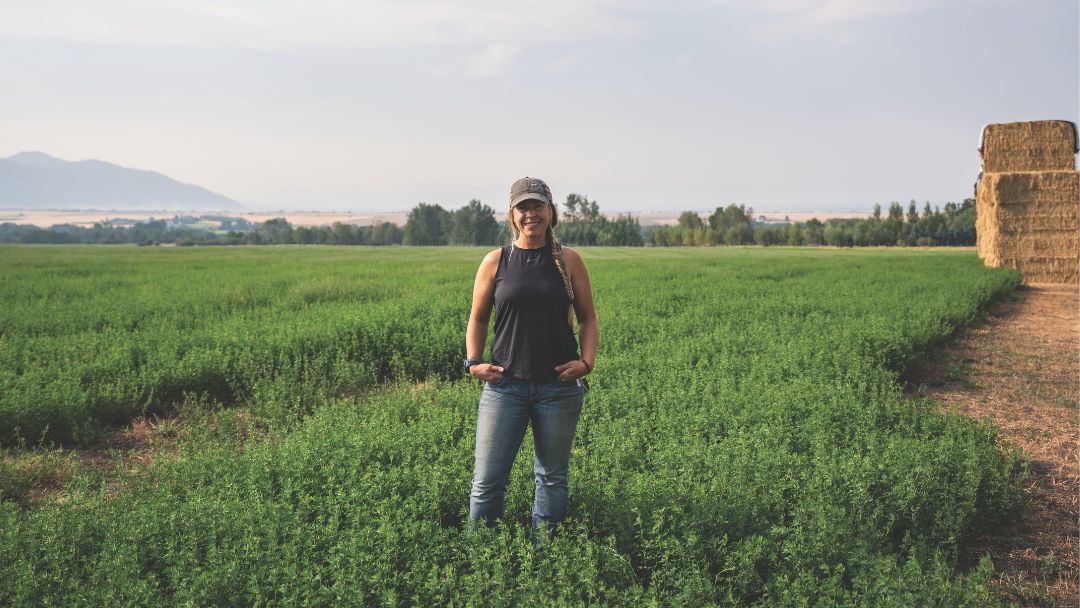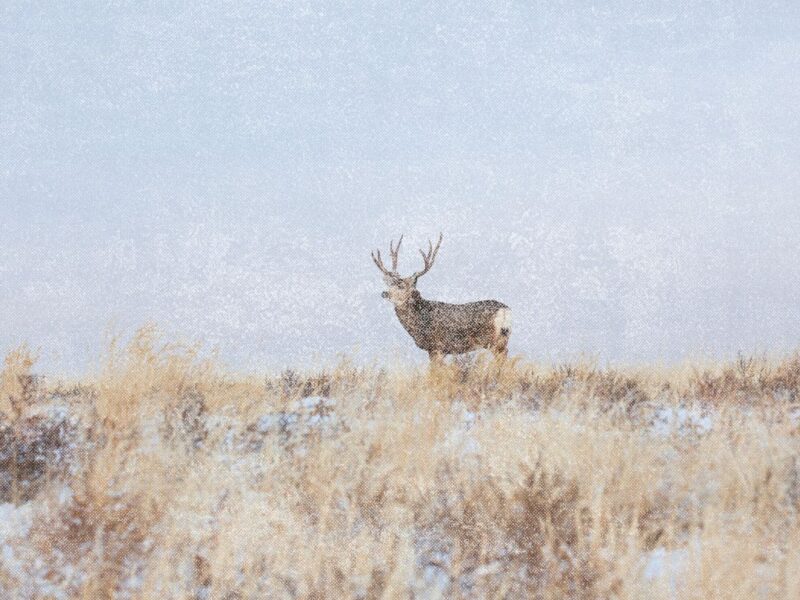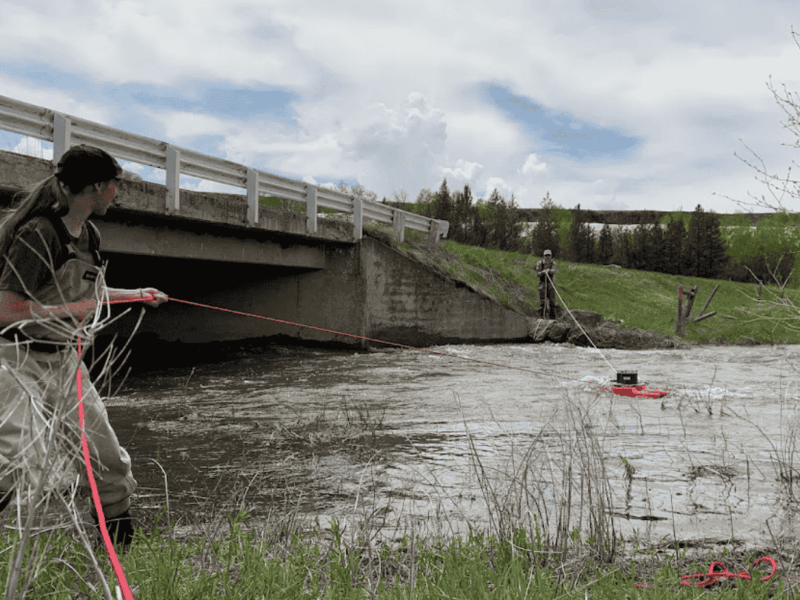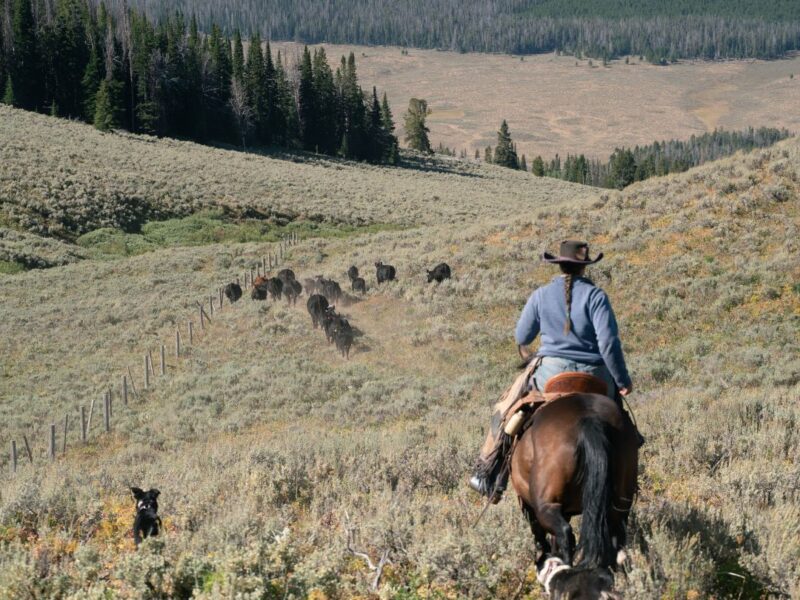Community Stewards of the West
Meet some of the people Who are keeping the West together.
In ways big and small, front and center and behind the scenes, these people are giving of themselves to build resilience in their corners of the rural West. They are each proof that the true spirit of the West is generosity.

Megan DeHaan
DeHaan Ranch,
Gallatin Valley, Montana
Megan DeHaan is a mother, rancher, ultrarunner and founder of the Crazy Mountain 100, Montana’s only 100-mile trail running event, which runs through two historic generational ranches abutting the Crazy Mountains. She bridges the gap between the ranching and running community. Megan, her husband and two boys make up the fourth and fifth generations at DeHaan Ranch, which is protected by one of the earliest major conservation easements in the Gallatin Valley.
“We want to show people what we do, and this [race] is a great way that we can do that.”
“When the land is healthy, when the soil is healthy, when the animals are healthy, everyone works together for that system. We’re doing this to make a living, but the side effect is conservation.”
“When the land is healthy, when the soil is healthy, when the animals are healthy, everyone works together for that system. We’re doing this to make a living, but the side effect is conservation.” – Megan DeHaan

Laura Nowlin
Nowlin Ranch
Petroleum County, Montana
Laura Nowlin is a wife and mother of two, working, living and playing on a little piece of paradise in central Montana, north of the town of Winnett. She and her husband, Levi, run a cow-calf operation on her family’s ranch. Laura is a founding member and executive director of Winnett ACES, a place-based collaborative whose mission is to strengthen their community by enhancing the health of the land, economy and traditions for future generations.
“People have been managing the land for thousands of years. That is a necessary thing. And to have those people on the land, they need the community infrastructure, like housing and daycare, and the store needs to be open, and there needs to be a post office, and there needs to be a school, and those kinds of things for them to be able to have a business and live in rural places. I think that’s part of why we’ve found the success that we have—because we acknowledge the link between community and ecological health.”
I think that’s part of why we’ve found the success that we have—because we acknowledge the link between community and ecological health.” – Laura Nowlin
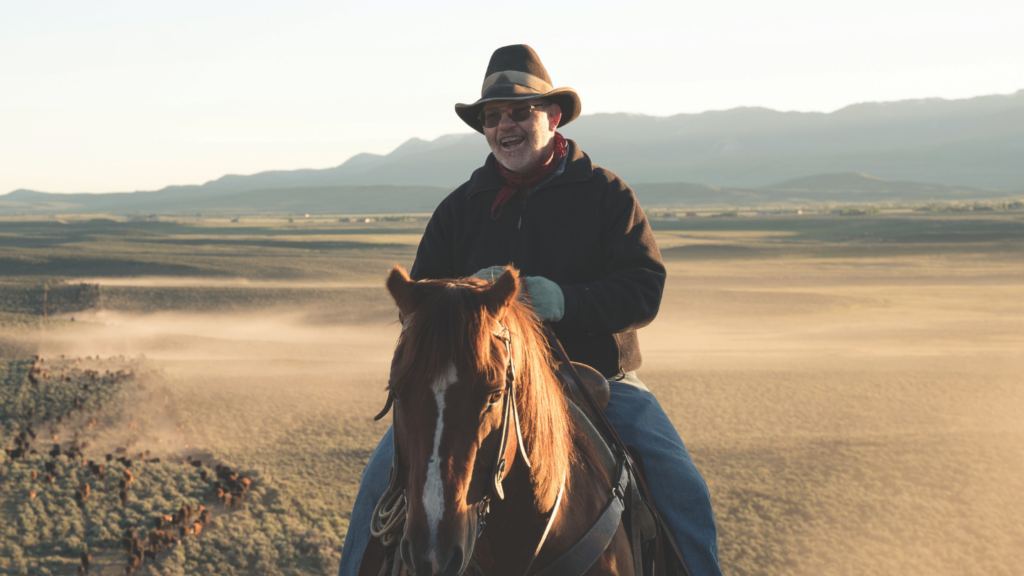
Albert Sommers
Sommers Ranch
Pinedale, Wyoming
Albert Sommers lives at the end of a dirt lane south of Pinedale, Wyoming, that bears the family name. There the Sommers family has raised cattle for four generations, continually adapting their practices to the region’s notoriously extreme weather. Albert wears many hats; rancher, state representative, past head the Upper Green River Cattlemen’s Association—the list goes on. All the while, he is a constant advocate for the working lands of the Upper Green River Basin and the wildlife they support. As public servant and land steward, Sommers builds from a land ethic passed through generations, one that drives efforts to support his community, both human and wild.
“It really goes back to my dad, who was just a straight-up cowboy—and we had one hundred deer around a haystack one day, and I was griping, saying those dang deer! And, you know, he said, ‘They were here before we were.’ We still see elk, we still see deer, we still got moose, antelope, you know, everything’s still here. And I think people enjoy that. I think ranchers enjoy that. Ranches are integral to wildlife habitat in this area and if they go away, it will be a great loss to us all.”
“Ranches are integral to wildlife habitat in this area and if they go away, it will be a great loss to us all.” – Albert Sommers

Kim Kerns
Jacobs Ranches
Baker City, Oregon
Kim Kerns is a fourth-generation sheep and cattle producer on her family’s ranch in the high desert of eastern Oregon. She contracts with Western Landowners Alliance to support producer outreach to reduce conflicts with wolves. Kim also volunteers with her local Rangeland Fire Protection Association (RFPA). RFPAs are volunteer wildland fire crews of ranchers and farmers who are trained and authorized to respond to fires on private and state lands, filling a critical gap in remote areas. This volunteer crew was especially needed during the lightning-caused Durkee Fire, which burned nearly 295,000 acres in July 2024.
“Things aren’t great here right now. There’s a lot of dead cows out there and I know there’s a lot of grass that’s gone, but everyone’s keeping it together pretty well. Everybody’s shifting hay around to help neighbors out and donating to the RFPAs and donating to ranchers that have lost a lot of livestock and grass.
“Very often in rural communities, you are faced with all kinds of setbacks…and I think the ability of that community to come together, put their heads together and come up with a solution really speaks to their resiliency and how that community can work together to overcome things like fires.
“I think we’re doing a pretty good job.”
“Very often in rural communities, you are faced with all kinds of setbacks…and I think the ability of that community to come together, put their heads together and come up with a solution really speaks to their resiliency and how that community can work together to overcome things like fires.” – Kim Kerns

Rizpah Bellard
Nova Farming
Fresno, California
Rizpah Bellard, the founder of Nova Farming, holds a steadfast belief in agriculture’s potential to create lasting social change. Her motto, “Expose and educate, we grow people,” reflects her commitment to revealing the world of agriculture to underserved and marginalized urban communities. She aims to demonstrate the essential connection that people can share with their food sources. Bellard brings the ranch to the classroom in urban Fresno, California to provide an entry point to nature and helps illustrate to young people different ways to access agriculture in their own lives.
“Working with animals and working in agriculture has taught me how to be nice to people, how to give back to people, to help people. You have an animal that’s sick or hurt, it’s your job to provide that support, to provide that aid for it. For me, agriculture just helped me be a nice person, a better person, a caring person and a loving person.”
“Working with animals and working in agriculture has taught me how to be nice to people, how to give back to people, to help people.” -Rizpah Bellard

George Whitten & Julie Sullivan
San Juan Ranch
Saguache, Colorado
George Whitten and Julie Sullivan employ holistic management practices to raise grass-fed beef in the San Luis Valley of Colorado. They emphasize the interconnectedness of social, environmental and economic factors in their management, striving to maintain a balance among these values to achieve success.
In addition to stewarding the land, George and Julie are committed to nurturing the next generation of agrarians. They helped establish The New Agrarian apprenticeship program in collaboration with the Quivira Coalition. George and Julie have personally mentored over a dozen apprentices since 2006. Remarkably, 90% of these apprentices have continued their careers in regenerative agriculture and range management.
GW: “Julie and I have put a lot of effort into bringing young people into this operation who are interested but don’t normally have access. They weren’t born on a farm, they didn’t somehow marry into a farm… they have no way to get back onto the land.”
JS: “Our apprentices have that desire to not just do this for themselves, to want it to have a life beyond us. They give us a lot of hope.”
“Our apprentices have that desire to not just do this for themselves, to want it to have a life beyond us. They give us a lot of hope.” -Julie Sullivan

Joel Bernstein
262 Ranch
New Mexico
Joel Bernstein, WLA board member, is a renowned expert on Native American art, a historian and teacher of rodeo, and a rancher. He’s a shining example of community stewardship, from installing wildlife-friendly fencing to working with his neighbors to get NRCS support for beetle-kill pine removal to lower the chance of catastrophic wildfires for all, to nudging neighbors on the importance of permanent conservation in the Brazos Cliffs.
“I’ve been saying this for years: ranching is all about cooperation! To me, ranching is not a ‘go-it-alone’ endeavor. Now more than ever, it’s neighbors helping neighbors that will save the West.”
“I’ve been saying this for years: ranching is all about cooperation! – Joel Bernstein
DeWitt and Katherine Morris
Mountain Springs Ranch
Boulder, Wyoming
DeWitt “Dee” Morris is passionate about wilderness. That passion, and a career in exploratory geophysics, took him to unexplored jungles and deserts around the world, places like Yemen, the Fly River Delta in Papua New Guinea and the Ucayali River in the Amazon Basin of Peru, not to mention multiple campaigns throughout all regions of Alaska and the Rocky Mountains. The seismograph business was literally Dee’s ticket to see the world and work with people from all walks of life. But in the end, Wyoming and the Wind River Range called him home to share that passion with children from all over the West. He and his wife Katherine (“Kay”) founded CampGROW, which runs summer camps dedicated to cultivating a love of nature in the next generation.
“We are truly blessed to live here in the foothills of the Bridger Wilderness and there can be no more fulfilling purpose than sharing it with today’s youth. Ultimately, they are the ones who will determine the fate of these wild places we all so dearly love.”
“We are truly blessed to live here in the foothills of the Bridger Wilderness and there can be no more fulfilling purpose than sharing it with today’s youth. Ultimately, they are the ones who will determine the fate of these wild places we all so dearly love.” – Dee Morris


